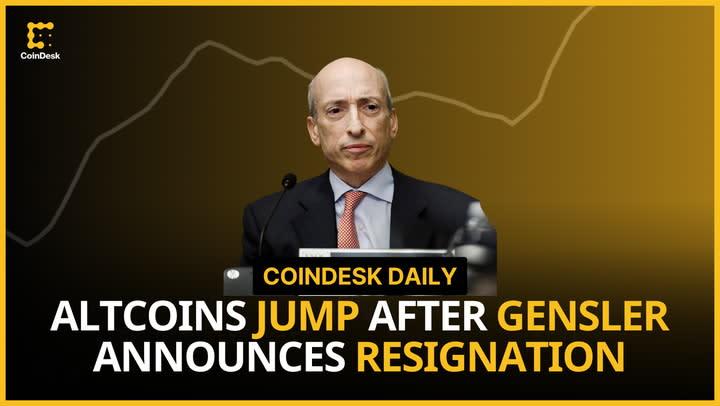Gary Gensler, the current Chair of the U.S. Securities and Exchange Commission (SEC), has announced his decision to resign effective January 20, 2025. This development has sparked widespread discussions about its potential implications for the financial industry, cryptocurrency regulations, and the future of the SEC.
Who is Gary Gensler?
Gary Gensler is a prominent figure in the financial and regulatory landscape of the United States. Serving as the SEC Chair since April 2021, he brought extensive experience from his time as the Chairman of the Commodity Futures Trading Commission (CFTC) during the Obama administration. Gensler earned recognition for his rigorous approach to financial regulations and his strong stance on protecting investors.
Before his career in public service, Gensler worked in investment banking at Goldman Sachs, where he gained in-depth knowledge of financial markets. He is also a professor at the Massachusetts Institute of Technology (MIT), specializing in blockchain and digital currencies. Known for his analytical rigor, Gensler played a pivotal role in shaping modern financial oversight in the U.S.
Why is Gary Gensler Resigning?
Gary Gensler’s resignation aligns with the end of President Biden’s current term. Analysts speculate that Gensler might be stepping down due to mounting criticism over his handling of cryptocurrency regulations and broader market oversight. Critics argue that his stringent policies on digital assets stifled innovation in the crypto sector, leading to legal challenges and dissatisfaction among industry leaders.
Others believe that Gensler’s departure is part of a natural transition in leadership as the SEC prepares to adapt to emerging market dynamics. His tenure has been marked by both praise for his commitment to investor protection and criticism for a perceived lack of flexibility in dealing with rapidly evolving technologies.
Impact on Cryptocurrency Regulations

Market Reactions
Gensler’s resignation has elicited mixed reactions from cryptocurrency stakeholders. Some industry leaders view his departure as an opportunity for the SEC to adopt a more lenient and innovation-friendly approach to digital assets. Cryptocurrency markets have already shown signs of optimism, with minor rallies observed in major tokens following the announcement.
On the other hand, skeptics warn that Gensler’s exit could lead to regulatory uncertainty. Without a clear successor committed to a balanced regulatory framework, the crypto industry may face prolonged ambiguity, potentially affecting investor confidence and market stability.
Potential Successors
Several names have emerged as potential candidates to succeed Gary Gensler as SEC Chair. Among them are individuals with extensive backgrounds in financial regulation, including former SEC commissioners and legal experts specializing in securities law. A shift in leadership could herald significant changes in the SEC’s regulatory priorities, particularly concerning cryptocurrency oversight.
Future of SEC Policies
The resignation marks a pivotal moment for the SEC. With Gensler’s departure, the agency has an opportunity to reassess its regulatory approach to emerging financial technologies. Whether the SEC will maintain Gensler’s hardline stance on cryptocurrencies or pivot toward a more accommodative framework remains a key question for market participants.
Reactions from the Financial Industry
The financial industry’s response to Gensler’s resignation has been varied. Traditional financial institutions have generally welcomed his departure, citing frustrations with what they perceived as overly burdensome regulations. Meanwhile, advocates of stricter oversight have expressed concern that his exit could weaken investor protections.
Industry experts emphasize the importance of appointing a successor who can balance regulatory enforcement with fostering innovation. Many believe that the next SEC Chair will face the dual challenge of safeguarding market integrity while enabling growth in nascent sectors like blockchain technology.
What’s Next for Gary Gensler?
As Gensler prepares to step down, speculation about his future plans is rampant. Given his expertise in blockchain and finance, he may return to academia, where he previously served as a professor at MIT. Alternatively, he could take on advisory roles in global financial institutions or think tanks, leveraging his regulatory experience to influence policy on a broader scale.
Some observers believe Gensler might remain active in the public sphere, advocating for responsible financial innovation and sustainable regulatory practices. His next steps will undoubtedly attract significant attention, given his high-profile career and enduring influence on U.S. financial policy.
Key Takeaways

Looking Forward
Gary Gensler’s resignation signifies a critical juncture for the SEC and the broader financial industry. As the agency transitions to new leadership, market participants will closely monitor developments to gauge the potential impact on regulatory policies and market dynamics.
Who is Gary Gensler?
Gary Gensler is a seasoned regulator known for his rigorous approach to financial oversight. His tenure as SEC Chair has been marked by significant achievements and controversies, particularly in the realm of cryptocurrency regulation.
Why is Gensler Resigning?
Gensler’s decision to step down reflects a combination of personal and professional factors, including criticisms of his regulatory policies and the natural end of his term under the current administration.
Impact on Cryptocurrency Regulation
Under Gensler’s leadership, the SEC adopted a stringent approach to cryptocurrency regulation, emphasizing investor protection and legal compliance. His resignation opens the door for potential policy shifts that could reshape the crypto landscape in the U.S.
The Bottom Line
Gary Gensler’s resignation marks the end of a significant chapter in U.S. financial regulation. As the SEC prepares for new leadership, the financial industry faces both challenges and opportunities. The decisions made in the coming months will have far-reaching implications for traditional markets, digital assets, and the future of regulatory frameworks in the United States. By understanding Gensler’s legacy and the potential paths forward, stakeholders can better navigate this period of transition and uncertainty.


